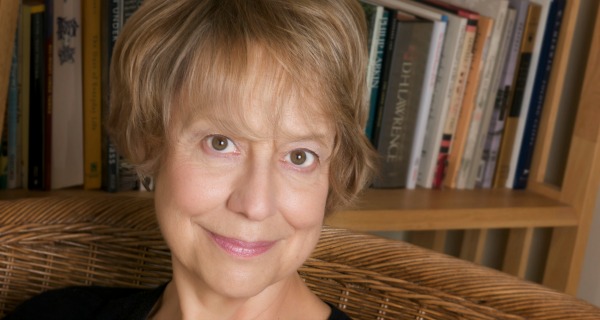
Ann McCutchan has one of those long, diverse bios that makes most people (or maybe just me) wonder what they’ve been doing with their own lives. She's the author of five books (with a sixth forthcoming from W.W. Norton); a former columnist for Gannett; a musician and librettist; the founding director of the University of Wyoming’s MFA program. And this summer, she added Lighthouse instructor to the list. I recently caught up with Ann to talk work-life-art balance, project choices, and, of course, writing.
Q. I found it really interesting that you’re a former journalist because I’m one too. But you’re also a musician, with an opera premiering in New York this fall. And you’ve spent many years teaching. How have you balanced all of that with your writing?
A. Everything, the mix of it, feels like an organic whole, although some years, one sort of activity may dominate. When teaching full-time, for example, I found it hard to work on long-form writing projects. Sustained attention to a book had to wait for summers. But I’ve always enjoyed, and prefer, having more than one project going. Keeping several in play doesn’t feel like a balancing act; they feed each other and generate more ideas. For example, the other day I was re-reading a short story by Marjorie Kinnan Rawlings, whose biography I am writing, and it struck me as a perfect tale for an opera. I emailed a composer I’ve worked with. He read the story, agreed with me, and now another project is in the making.
Q. So they feed one another?
Music feeds writing, no question. Both arts are concerned with sound, rhythm, line, harmony, tone color, articulation, and more. And writing is, after all, a kind of performance, experienced in time, as music is. It is composed, presented, and uttered out loud by way of the physical voice or the mind’s ear. Some musical experience transfers to writing unconsciously. My friend Emily Fox Gordon once commented that, in a three-part essay I’d written, the voice changed in part two. Without thinking, I said, “Oh, that’s because the first movement is an Allegro, the second an Adagio. Part three is an Andante.” I had no idea I’d conceived an essay in three musical movements until she brought it up. Since then, I’ve been a little more aware of certain tools or ideas I might transfer from musical forms to written ones. My memoir [Where’s the Moon], for instance, is an exercise in counterpoint between several themes and voices (all mine), addressing time and place, through research or experience. And because it culminates in the Apollo 11 launch, a national event witnessed up close with many others, it finally departs from my points of view and incorporates the direct memories of many other people (via interviews) who shared those moments. I was thinking of the choral finale of Beethoven’s Ninth Symphony, or the choral symphonies of Mahler, in which many people sing out together. The launch wasn’t about me, but about a wider community.
Q. Similarly, there’s a lot of variety in your writing too: memoir, essay, nonfiction, biography. How do you select your projects? And do you find one form to be easier than the others?
A. In most cases, I don’t select projects; they seem to arise. Essays emerge out of some obsession or compulsion I must explore or get to the root of, and they take their sweet time developing. My first book, a biography, came by way of a few people who thought the subject, the French flutist Marcel Moyse, ought to be written about, and would best be served by a musician who was also a writer. I was invited to consider the project, and so… The composer book [The Muse That Sings] came out of a lunch conversation with an editor who asked me how composers compose. “Well, you know, they just…“ “No, I don’t know,” she said, and off it went. A book about the Louisiana musician/sound preservationist Earl Robicheaux and the Atchafalaya River Basin’s compromised environment began when Hurricane Katrina hit New Orleans and I discovered Earl had barely survived it. Here was a compulsion that sprang from a catastrophe: the near-loss of an important citizen-artist, the near-loss of a city and devastation of the Gulf coast.
Obviously, I’m not market-driven. And no form or genre is easy, unless one is working with a commercial template, I guess. Biography is not a strict form. If it were, I could just map what I did with Moyse into the Rawlings project. Certainly the use of chronology is common to both, but the materials are not the same at all. Rawlings requires an entirely different approach.
Ann McCutchan will be teaching our Advanced Memoir and Narrative Nonfiction workshop starting August 15.

